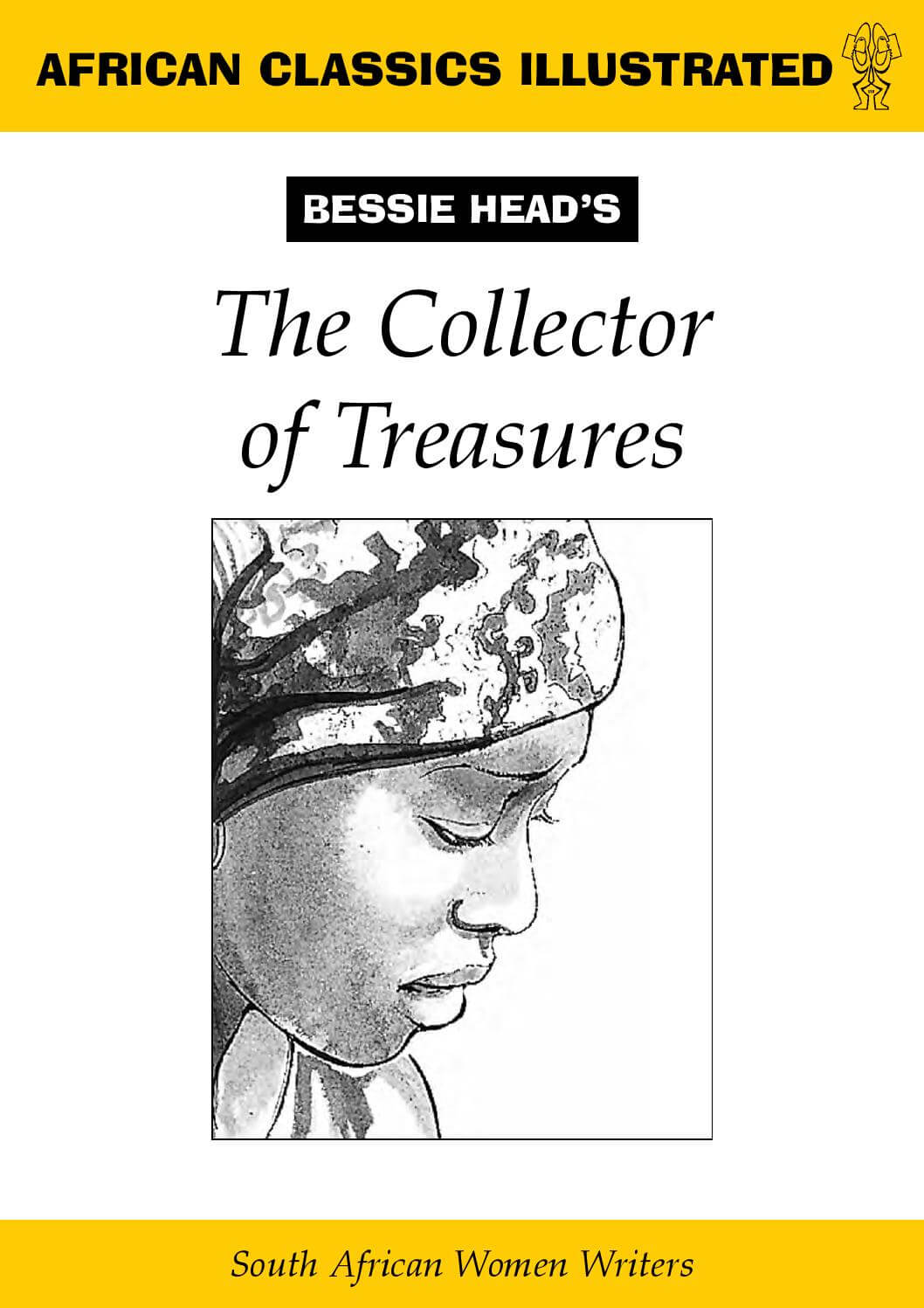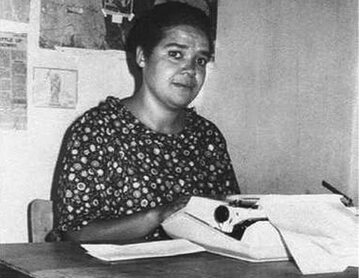The Collector of Treasure SummaryIn post-colonial Botswana, women and their families battle to exist in a male-dominated environment backed by no one except their survival goal. They are trying to integrate into a classist, discriminating society. The Collector of Treasures by Bessie Head explores Botswana's indigenous culture, social stratification, and gender inequality, which exacerbates the challenges of being a woman in a post-colonial society. 
In the collection, The Collector of Treasures: and Other Botswana Village Tales by Bessie Head, the short story "The Collector of Treasures" is included. Dikeledi Mokopi, the story's main character, is a woman who is imprisoned after being charged of murdering her husband, Garesego. When she gets to her imprisonment, the story starts with her interactions with other inmates. A flashback of her life before to the crime and the occasions that inspired her to do it follows. The heroine chooses to concentrate on the "gold amidst the ash," or the brief acts of compassion and camaraderie, which she views as "treasures," despite the gloomy themes and graphic crime that are present in the novel. About the AuthorBessie Emery Head was an African author who wrote morally didactic novels and short tales. She was born on July 6, 1937, in Pietermaritzburg, South Africa, and passed away on April 17, 1986, in Serowe, Botswana. Head was a child of an illicit relationship between her black father, who suddenly vanished after the birth, and her white mother, who was institutionalized while she was pregnant. At a young age, she experienced rejection and estrangement. She moved from foster parents to an orphanage school to an early marriage before leaving her own country with her young son and travelling to Botswana in search of personal sanctuary and tranquility in basic rural life. 
When Rain Clouds Gather (1969), the head's first book, was an objective, positive story of an exile discovering new meaning in his chosen town. Maru (1971), on the other hand, was a more introspective depiction of the acceptance gained by a light-skinned San (Bushman) lady in a black-dominated African culture. The protagonist battles delusion and disorientation to stay alive in the forthcoming autobiographical 1973 novel A Question of Power. The Collector of Treasures (1977), a collection of short stories, features incisive critiques of African male chauvinism, terrifying tales of witchcraft, and fleeting glimpses of traditional Botswanan rural life. The head asserts that writing must signify regular everyday interaction with common people. Her writings demonstrate empathy for young people, South African women who are treated like "dead things," and idealistic planners who encounter avarice and apathy in the marketplace. Theme of the StoryThe situation of women in 1960s Africa, where they were subjected to violence, suffered, and struggled to raise children in poverty, is a recurring theme in many of the accounts. However, they also showed extraordinary tenacity, fortitude, altruism, resourcefulness, and strength. Both the government, whether white colonial or tribal, and the actions and attitudes of individuals subject them to double colonization. From colonial control to independence and how this transition impacts society, especially the role of women, change is another important and connected issue. Conflict is brought on by the shift, not just between individuals but also inside them. Often, this conflict is between strong, oppressive forces and equally strong urges brought on by desire and defiance. The Deep River and Life, together with Kgotla (meaning the village court), where the case-deciding village elders are all males, serve as examples of the tremendous prejudice against women in patriarchal societies. The collection's strongest and most moving tale, the one with the same name, is about the treatment of women in marriage and displays head at her most outspoken in her critique of men. She considers how married women have been treated inhumanely from pre- to post-colonial eras. The heroic protagonist's "treasures" are the small deeds of compassion and understanding that she encounters and appreciates. Summary of the StoryDikeledi Mokopi is the main character. Dikeledi had a rough and challenging existence from an early age. Tears are the meaning of her name, Dikele. She was reared by her uncle, an egotistical guy who treated her like a servant and refused to send her to school after six years of being orphaned as a young girl. After Garesego had made the marriage proposal to her uncle, he was the one who approached Dikeledi about being married. Dikeledi accepted this offer since Garesego "was the only man who proposed to me," allowing her to "get out of my uncle's yard." There was never much happiness in the marriage, to begin with, but it swiftly deteriorated into an unpleasant one. Garesego had several relationships and was abusive. He ultimately turned Dikeledi and their three young kids up to their own means. Despite this, Dikeledi put a lot of effort into raising her three kids and used her abilities in knitting, thatch-making, sewing, and other fields to generate income and other resources for her family's support. With the entrance of her new neighbours, the Theobolos, her life underwent a pleasant transformation. Paul Theobolo, his wife Kenalepe, and their kids relocated to a plot adjacent to Dikeledi's garden after receiving an opportunity to lead a primary school in her community. As a result, a close and endearing bond between Dikeledi and the Theobolos developed. Each side was always eager and ready to assist the other. Between Kenalepe and Dikeledi, "one of those deep, affectionate, sharing-everything kinds of friendships that only women know how to have" developed. Dikeledi prepared garments for Kenalepe and her girls, and Paul Theobolo made sure "she be paid in household goods for these services so that for some years Dikeledi was always assured of her basic household needs" since she wouldn't accept payment in cash for her labour. It was "like a nugget of gold" to Dikeldi that her relationship with the Theobolos was a priceless treasure. It was a comfort and happiness to her, so she "took it and stored another treasure in her heart." The steady rhythm of Dikeledi's life will not last. Her oldest kid soon participated in and aced the primary school exit exams, earning a "Grade A." Dikeledi was quite proud of her son for achieving this, and she wanted to continue his education by enrolling him in a secondary school. She put a lot of effort into saving money, but she was unable to do it in full enough to cover his charge. She made the decision to confront Garesego about this issue and remind him of his fatherly responsibility to his kid. As Garesego declined to assist, this endeavour proved to be fruitless. In addition to declining to assist, he also alleged an affair between Dikeledi and Paul Theobolo. Garesego sent Dikeledi a message stating that "he was coming home for sex" because he felt threatened by the closeness that Paul and his separated wife maintained. He wanted to "establish his own claim" to her. Dikeledi thought about how she might protect the "treasures of kindness and love she had gathered from others" and fill her life "from defilment by an evil man," since she was aware that Garesego would not be deterred by her rejection. After some thought, she decided to write Garesago a note letting him know that she would have everything ready for his arrival. When Garesego came, he displayed complete disregard for his children, only wanting to "stake his claim over his wife." This served as Dikeledi's deciding element. She would have had a change of heart if he had shown his children even the slightest sign of kindness. Her determination was only bolstered by his inability to do so. Later that night, "Garesego lay stretched over the bed in a way that suggested he solely thought of himself and did not intend to share the bed with anybody else. He had slept off as soon as his head reached the pillow after feeling satisfied with meals and drinks. As soon as she saw him, Dikeledi "grabbed hold of his genitals and cut them off with one stroke, using the precision and skill of her hardworking hands." Dikeledi used this action as a means of protesting the persecution and unfair treatment she was subjected to with little hope of escape. She was jailed as a result of her action. Her travel to the penitentiary was characterized as being alone and secluded. However, as soon as she enters the facility, she quickly develops a bond with Kebonye and the other prisoners. Many women were jailed for killing their husbands, including Dikeledi. In spite of the structural issues that are so deeply ingrained in the fabric of the society and the legal system that is, at worst, complicit in and, at best, indifferent to these systems, Dikeledi maintains a positive outlook on life; "she had always found gold amidst the ash, deep loves that had joined her heart to the hearts of others. She was the collector of such treasures." Dikeledi honours the spirit of unity and brotherhood in the face of hardship by commemorating these treasures. |
 For Videos Join Our Youtube Channel: Join Now
For Videos Join Our Youtube Channel: Join Now
Feedback
- Send your Feedback to [email protected]
Help Others, Please Share









